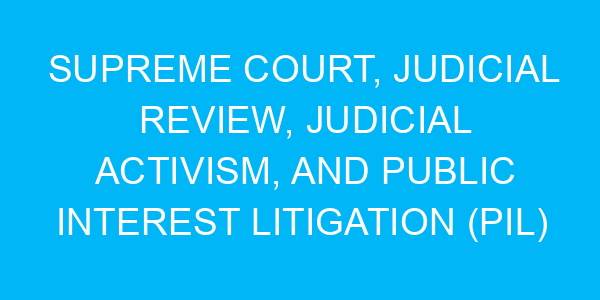131. The power of judicial review is based on the doctrine of:
a) Separation of powers
b) Due process
c) Judicial supremacy
d) Federalism
132. The concept of “public interest litigation” allows the court to:
a) Hear cases based on public opinion
b) Prioritize cases involving influential individuals
c) Hear cases that affect the public at large
d) Hear cases that involve international disputes
133. The Supreme Court of India has the power to issue writs for the enforcement of fundamental rights against:
a) Only the executive branch
b) Only the legislative branch
c) Only the judiciary
d) Any person or authority, including private individuals
134. The power of judicial review in India is a part of the basic structure doctrine, which means it cannot be amended or altered by the:
a) President
b) Parliament
c) Chief Justice of India
d) Prime Minister
135. The Supreme Court of India has the power of “judicial review” to ensure that:
a) All laws and executive actions are in line with the Constitution
b) The court’s decisions are in line with public opinion
c) The government has full control over the judiciary
d) The President has the final say in all matters



